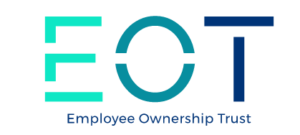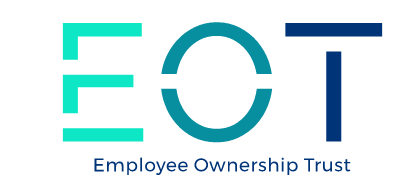The Liberal Democrats suggest letting staff in big companies ask for shares. This is part of efforts to change how workplaces function in the UK. It aims to make the workplace better for everyone, including those in small and medium businesses.
Social mobility is key to these schemes. It means your talent and hard work should help you succeed, not your background. The Social Mobility Commission’s advice is to make workplaces where everyone can do well. These ideas match well with sharing ownership with employees, making workplaces fairer and more inclusive.
To use these ownership changes well, businesses need to understand them. They can pick from plans like SIP, EMI, and EOT to bring different ideas and creativity to their teams. This can lead to equal chances for all, happier employees, and better business results.
Understanding Employer Ownership Schemes
Employer ownership schemes make it possible for employees to own part of their company. This idea helps create a strong workplace. It also makes employees happier and more productive.

What is an Employer Ownership Scheme?
Basically, these schemes let workers own a bit of the company. They might buy shares or be part of a trust. If an employee ownership trust (EOT) owns over 50% of the company, workers can get bonuses without paying income tax. This shows the real benefits of such schemes.
Types of Employee Ownership Models
There are a few main ways employees can own part of their company. Here are the most common ones:
- Employee Ownership Trusts (EOT): Sellers avoid capital gains tax if they sell more than half of their company.
- Share Incentive Plans (SIP): Staff can get shares with special tax breaks.
- Enterprise Management Incentive (EMI) schemes: Selected employees can buy shares at a set price, avoiding income tax when they get them.
- Save As You Earn (SAYE): Offers tax benefits, without income tax or NI on the share’s value increase over three years.
- Company Share Option Plans (CSOP): Lets employees get options to buy shares, with no tax on the profit up to £30,000 over three years.
Benefits of Employer Ownership Schemes
Employer ownership schemes lead to better work performance and happier staff. They link to more productivity, loyalty, and flexibility. Studies show owning shares in the company improves business outcomes. Employees can own their company together, which builds unity and dedication. The £3,600 tax-free bonus from EOTs is a big perk for employees.
Government Initiatives and Support
The government helps a lot with these schemes, offering tax breaks and advice. Using schemes like SIP, EMI, and CSOP brings many benefits. It lets companies save on taxes. Government schemes make it easier and smarter for a company to share ownership with its employees. They encourage a more diverse and inclusive workforce, valuing potential and soft skills over rigid qualifications.
Cultural Shifts Driven by Employee Ownership
Employee ownership schemes are changing our workplaces dramatically. They promote workplace inclusion in a big way. Everyone contributes equally, breaking down socio-economic barriers and creating a diverse culture.
Data shows employee-owned firms have up to four times higher retention. In these companies, employees earn 33% more than those in other firms. This showcases the financial upside of being inclusive, especially for minority workers who may earn significantly more.
For women, the benefits are clear. At employee-owned companies, single and married women earn 24% and 17% more, respectively. This points to how employee ownership can help close the gender pay gap.
Employee-owners stay with their companies longer, averaging 5.2 years. This loyalty shows the powerful bond employee ownership creates. Additionally, these firms are more stable during tough times, laying off fewer people. This highlights the commitment to employees’ welfare.
Employee engagement sees a positive shift too. Despite many workers wanting to leave their jobs, those in employee-owned firms tend to stay. This is because these companies are better at keeping employees interested and creative.
Employee ownership offers clear benefits, like better pay and job stability. It’s a model for others, showing how to foster diversity and inclusion. This cultural shift is key to building workplaces that are inclusive, engaged, and successful.
Implementing an Employer Ownership Scheme
For a business to start an Employer Ownership Scheme, leaders must focus on including everyone. They need to improve how they hire and promote people. Doing this helps the company be more welcoming and brings real benefits.
Steps to Transition Your Business
Moving to an employee ownership model needs careful thought and action. Businesses have to pick the right ownership setup. This could be directly owning shares, having an Employee Benefit Trust, or both. It’s key to keep employees in the loop, making them feel part of the journey.
Always talking clearly and showing the plan helps get everyone on board. This ensures employees are engaged and take part in the process.
Tax Incentives for Employers
In the UK, certain tax perks help businesses move to employee ownership. If owners sell a big part of their business to an Employee Ownership Trust, they won’t have to pay some taxes. They won’t face capital gains tax and can give workers tax-free bonuses up to £3,600 each year.
These tax breaks make changing to employee ownership easier on the pocket. They also motivate more businesses to adopt this model.
Case Studies of Successful Implementations
Many stories show the good things about employee ownership. Businesses with it grow faster and make more sales. For example, UK companies in different fields have seen bigger profits and better financial health.
Having a say in the business lowers staff missing work and accidents. It shows why it’s good when employees have a stake in their workplace.
Challenges and How to Overcome Them
Switching to employee ownership might be tough, but firms can get through it. They should make fairness and including everyone a main goal. Equal pay and unbiased hiring are important. Working with trade unions and setting up employee groups can help.
Leaders showing they are involved and supportive is crucial. Talking clearly and having an open plan helps tackle challenges. This leads to long-term success.
Employee Ownership Trusts (EOTs)
Chartered Accountancy
Business Transitions to EOTs
Employee Engagement
Nigel Watson, a prominent consultant and author in the realm of Employee Ownership Trusts (EOTs) within the UK, boasts over twenty years of experience. Having embarked on his career as a chartered accountant, Nigel soon shifted his focus to the intricate world of employee ownership models. He has since played an instrumental role in guiding over 100 organizations, from private enterprises to public institutions, through the seamless transition to EOTs.
Read my full Bio
- Employee Ownership Trusts: Revolutionizing Business Succession Planning - December 1, 2024
- How Employee Ownership Trusts Are Revolutionizing Corporate Governance - December 1, 2024
- Learning from Failed EOT Transitions: Critical Insights from the Field - November 30, 2024




